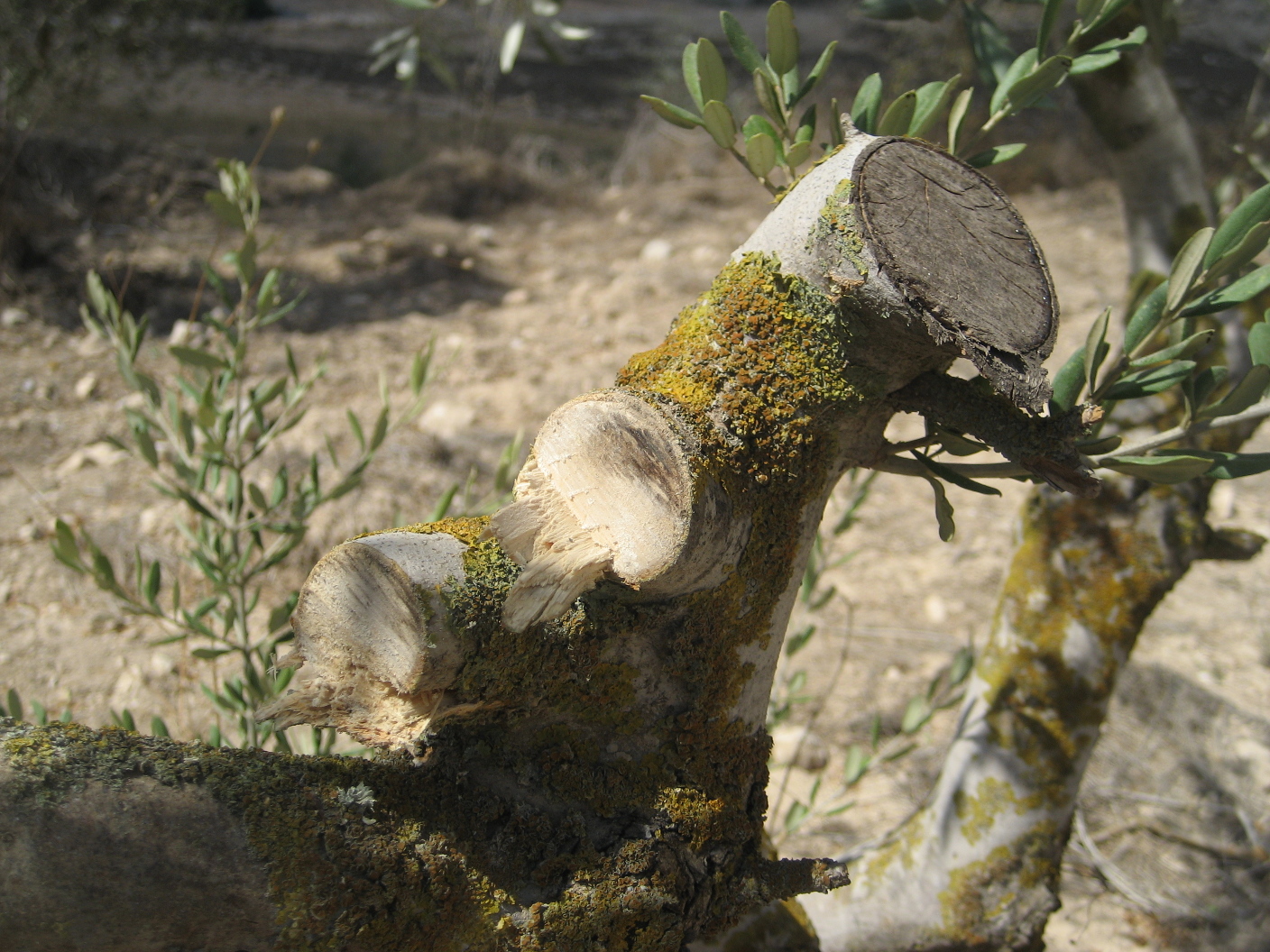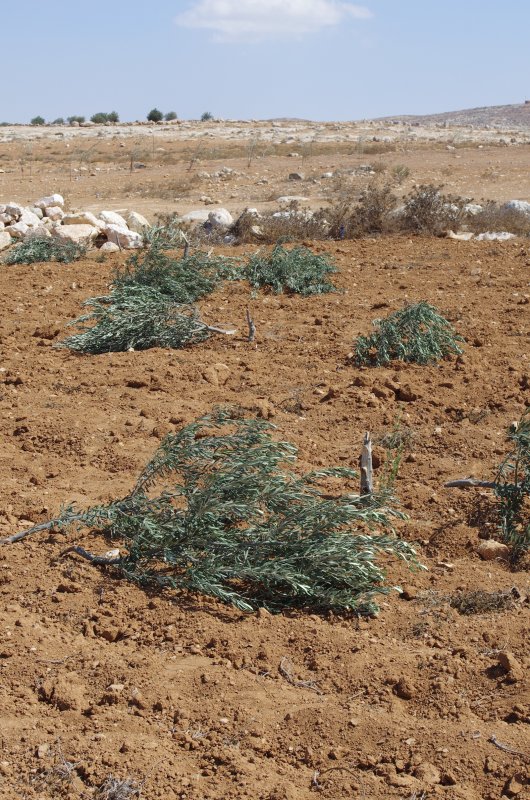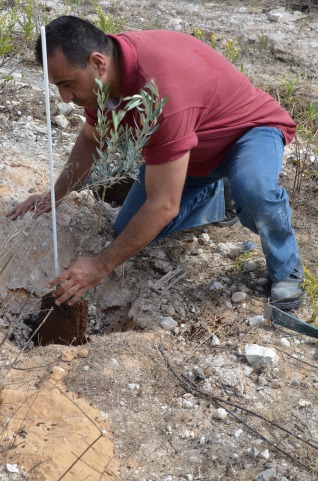Category: Reports
-
Settlers steal olives from 110+ trees in Abu Huwar
7th of October | International Solidarity Movement, Team Nablus | Deir Sharaf, Occupied Palestine On the 5th of October, local farmers discovered that the olives from more than one hundred trees had been stolen, and that another ten trees had been damaged or destroyed. Abu Huwar farm, belonging to Yasser Fuqaha, Sidqi Fukaha, Mustafa Fuqaha…
-
48 young olive trees destroyed in South Hebron Hills
4th October 2013 | International Solidarity Movement, Operation Dove | Qawawis, Occupied Palestine Yesterday morning, 3rd October, Palestinians discovered 48 olive trees destroyed alongside bypass road 317 near the South Hebron Hills area village of Qawawis. The olive tree grove belongs to Ali Shetat from Qawawis and had been planted six years ago. At 10…
-
Palestinians celebrate the reclaiming of their land
4th October 2013 | International Solidarity Movement, Nablus Team | Burqa, Occupied Palestine On Thursday the 3rd of October, a large group numbering around a 100 people, consisting mainly of Palestinians from the village of Burqa and the surrounding areas, as well as a smaller contingent of international activists and the press, celebrated the Palestinians’ reclamation of…



